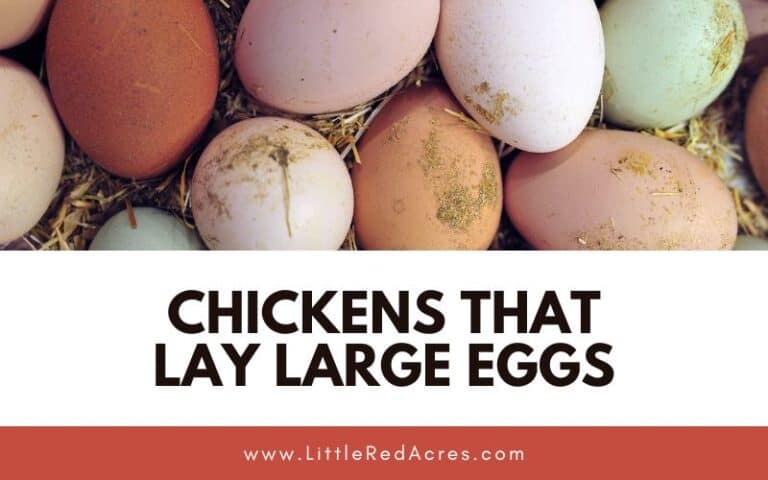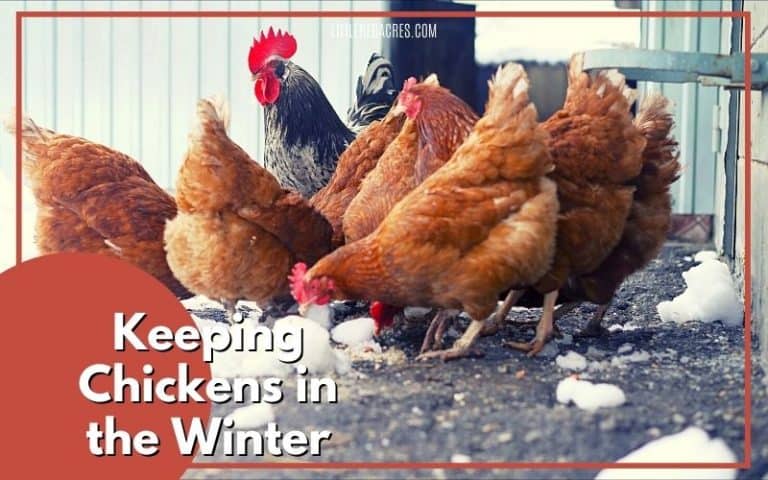Ways to Preserve Eggs
Eggs aren't something that people think about preserving until they have chickens and end up with an abundance of eggs. And mid-Spring is usually when you'll have an abundance of eggs if you have layers. I love to bake, we sell and hatch a lot of them, but we still have a lot of eggs. So we preserve eggs for the winter.
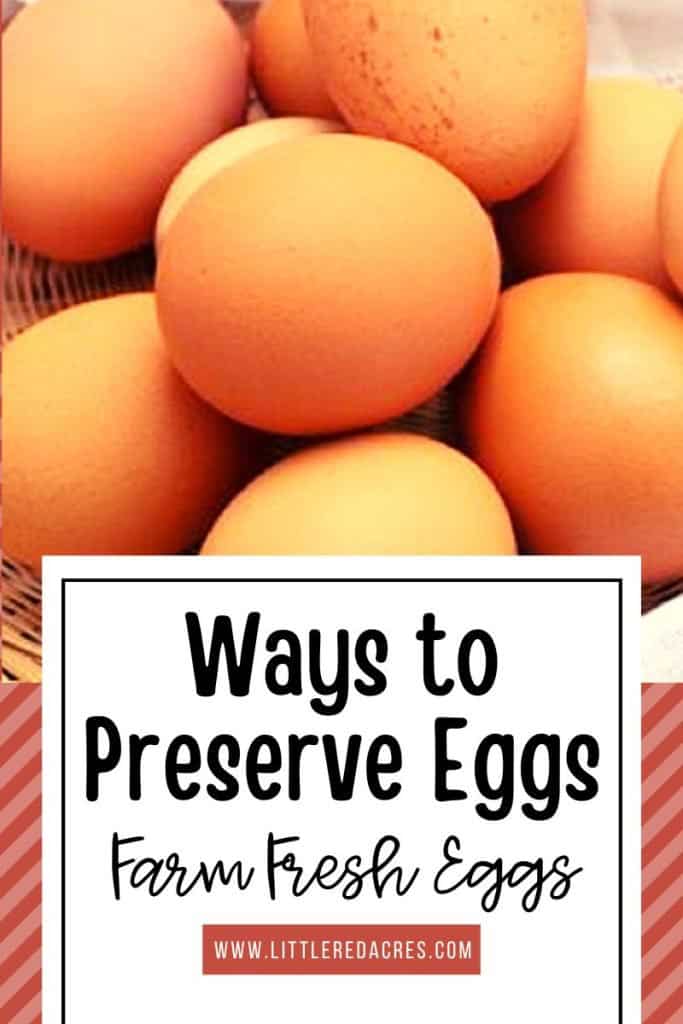
This post may contain affiliate links, see my disclosure policy for more information.
Ways to Preserve Eggs
If you have fresh eggs from your own chickens, it's best to store them on the counter without washing them. These eggs have a natural protective coating called “bloom” that keeps them safe in the nest, and this coating also works when storing them on the counter.
Before placing them on the counter, simply remove any debris by brushing them off.
Get updates & freebies delivered to your inbox!
Freeze Preserving Eggs
Did you know you can freeze eggs? And they taste nearly the same after they have thawed too. You can fry them, bake with them or add them to casseroles or other recipes even after they have been frozen and thawed.
All you need to do is crack your eggs into a mixing bowl, or large measuring cup. lightly scramble but try not to get any air into them.
Add salt or sugar to your eggs – don’t skip this part! Egg yolks have a gelatinous property in them that will thicken when frozen. By adding in salt or sugar before freezing, it will stop it from happening.
- Add in 1 teaspoon of salt per cup of eggs for eggs that will be used for savory items like scrambled eggs, omelets, or souffle.
- Add in 1 teaspoon of sugar per cup of eggs for eggs that will be used for cake, desserts, or sweet items.
I like to avoid freezing things like this because we live on the shore and get power outages. I don't want to end up with my hard work thawing at the wrong time.
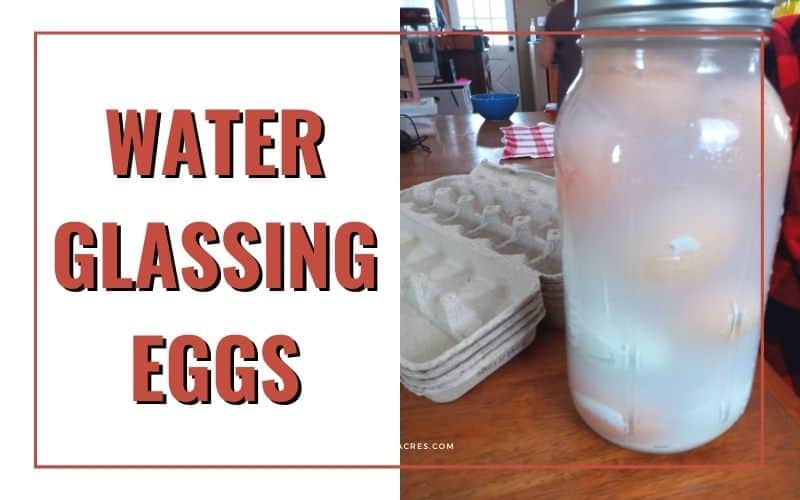
Water Glassing Storage
The ingredient that is important to remember is to use pickling lime (hydrated lime). This is only for farm fresh eggs that have NOT been washed. You can read water glassing egg instructions in full here.
This is my preferred method for preserving eggs long time. Last year I did not add to my flock so I stored a lot of eggs for the winter. Hens tend to slow down, if not stop laying over the winter. To get us through the winter without having to buy eggs I water-glassed roughly seven dozen eggs.
Dehydrating Eggs
Dehydrating eggs to create a powder is quite easy to achieve, however, you will need a dehydrator for this method. Egg powder is used for making scrambled eggs, omelets, and baked goods.
How to dehydrate eggs:
- Using a hand whisk, whisk eggs well until the yolk and whites are thoroughly blended.
- Line the dehydrator trays with parchment paper or fruit leather sheets
- Slowly add scrambled eggs to the drying trays, set the temperature to the appropriate drying time mentioned in the dehydrator’s manual. Based on the placement of the fan, eggs will take between 12 to 18 hours to dry.
- Once completely dried, place the eggs into a blender, or food processor and grind to a powder. Store powder eggs in a glass mason jar with an oxygen absorber. Vacuum-seal the jars to preserve their freshness.
To reconstitute the powdered eggs add 2 tablespoons of powdered eggs to 6 tablespoons of water. The powdered eggs do not need to be reconstituted, simply add the dried eggs and water directly to the mixing bowl along with the other ingredients.
Freeze Drying Eggs
Investing in a freeze dryer is a big expenditure, but a great investment for those who seek to live a more sustainable life. Foods preserved with the use of a freeze dryer maintain 97% of the food’s nutrients while maintaining flavor and color. Food preserved with a home freeze dryer allows for long-term storage between 10 to 25 years.
This allows those who live or seek to live, a sustainable life to prepare for unforeseen circumstances such as a natural disaster, unemployment, pandemic, and even when your flock is on sabbatical from laying.
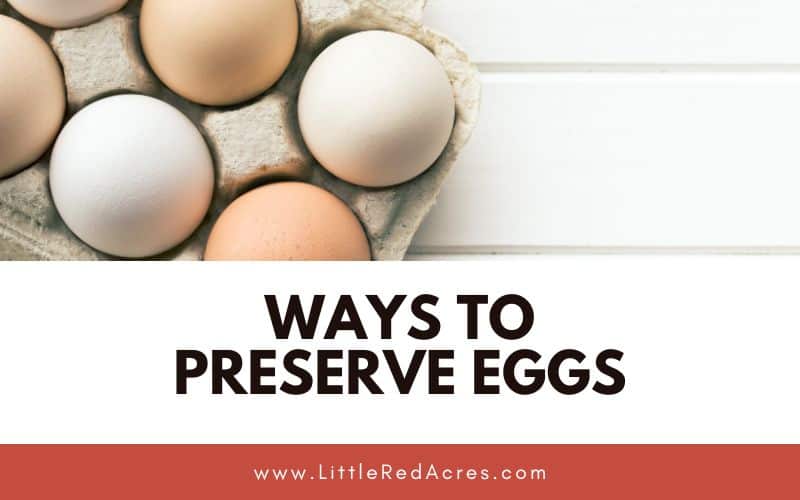
Fridge Storage
As a general rule, unwashed eggs will last around two weeks unrefrigerated, and about three months or more in your refrigerator. If you're experiencing an egg boom, it's smart to refrigerate any unwashed fresh eggs you aren't planning to eat immediately. If you don't plan on using one of the other methods of preserving eggs.
If you don't want to preserve eggs, you can always sell them farm-to-gate at the end of your driveway or give them to friends and family.
The whole reason behind laying hens is the eggs. So instead of having to buy eggs through the winter when your ladies slow down or stop laying, save some. It's easy. And worth it.



